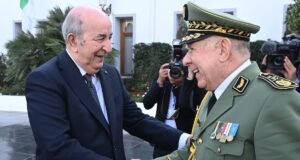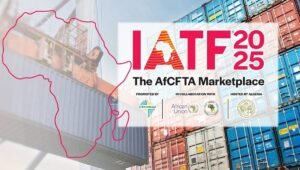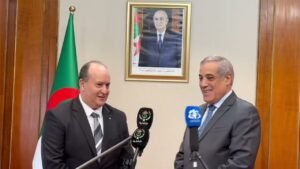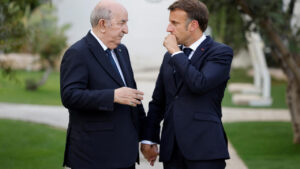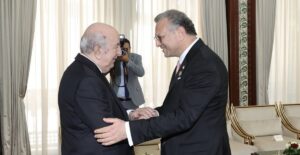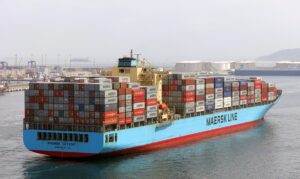The 34th anniversary of the Algerian “Autumn of Rage”... How similar today is to yesterday!!
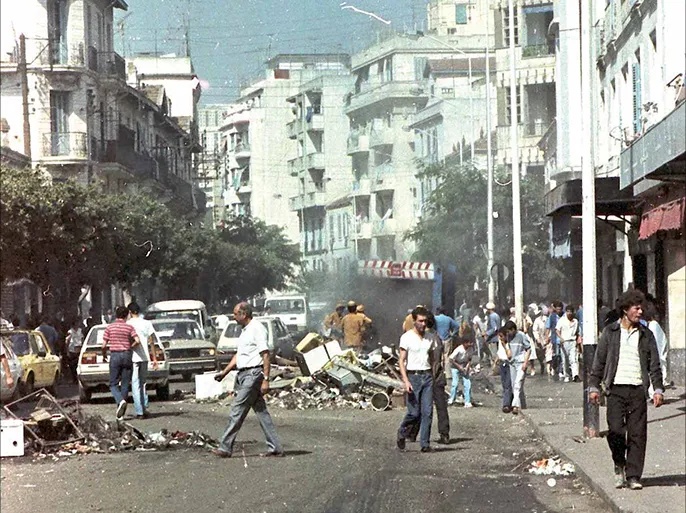
On this day in 1988, the first popular demonstrations erupted in the historic Bab El Oued neighborhood of the Algerian capital, sparking massive social protests that lasted a week (October 5-12) and spread throughout the capital, as well as the cities of Annaba, Constantine, the Kabylie region, and elsewhere. Despite the brutal repression meted out by security forces against the demonstrators, resulting in nearly 500 deaths and several thousand injuries, the steadfast will of Algeria's free people prompted the head of the regime at the time, General Chadli Bendjedid, to implement a package of political and social reforms. These reforms led, a year later, to the first multiparty elections, following the end of the one-party system (the National Liberation Front).
Despite the various names given to the popular uprising by Algerian and international media outlets—most notably the “Bread Revolution” and the “Autumn of Anger”—everyone agrees on the validity of the deteriorating political, economic, and social conditions that led to it, a situation whose effects successive authorities have been unable to address or mitigate since independence.
As usual, the logic of counter-revolutions, in its attempt to distort the popular uprisings that express the anger of citizens, especially the poor, towards corruption, mismanagement in the state, the suppression of freedoms, the disruption of the justice system, the deterioration of their living conditions, and their lack of the most basic human services that are granted to them by merely belonging to the homeland, the Algerian regime’s media, which is largely considered a creation of the “Lord of Algeria,” General Mohamed Mediene, nicknamed “Tawfiq,” was keen to make the popular uprising of 1988 a cause, and to hold it responsible for the sins and crimes of the “Black Decade,” during which the “French generals” made the sons of the free Algerian people taste all kinds of torment, imprisonment, displacement, and killing, after they canceled the results of the first round of the multi-party elections, and created the “scarecrow of terrorism” represented by the Islamic Combatant Groups, which they supervised the formation and training of, and directed to kill the largest number of innocent civilians (according to the testimonies of defected officers from the army, security, and intelligence services). (Algerian) so that Algerians can pass on the memories of the horror of those years in their “genes” and pass them on to their children, to instill in the collective memory of Algerians the heavy price of “rebelling against the authority of the generals of the Algerian regime”!
Now, on the 34th anniversary of this popular uprising, which demonstrated the Algerian people's vitality and resilience to "domestication," as well as their high sense of dignity and self-esteem, Algeria's generals, both civilian and military, do not appear to have learned their lesson, nor do they possess any innovative solutions that would contribute to consolidating well-being, sufficiency, and social peace among Algerians. Since independence, France, the former/current colonizer, has held tight to the Algerian power structure and its influential wings: the presidency, the army, and the intelligence service. Since the middle of the last decade, the latter has been transformed into two wings after the army took over the intelligence service, the result of a "bone-crushing" battle between the late army commander, Lieutenant General Ahmed Gaid Salah, and the powerful intelligence chief, retired General Mohamed Mediene (Tawfik).
With a history spanning nearly six decades, this regime is content to “buy time” and resist any significant change, taking advantage of successive oil booms to apply cosmetic touches to its ugly face. The army and its generals still control the levers of power and hold the final say. The presidency remains subservient to the dictates of the army, even after they replaced military presidents (Generals Boumediene, Benjedid, and Zeroual) with civilian presidents (Boudiaf, Bouteflika, and Tebboune). Oil and gas remain Algeria’s sole source of exports and hard currency (Algeria’s total exports outside the hydrocarbon sector barely touched $5 billion last year!!). Social bribery remains the tactic adopted during the oil boom years, such as salary increases and social projects such as housing, education, and health. These, on the one hand, are insufficient to meet the needs of Algerian citizens, and, on the other hand, are losing their value immediately due to inflation and rising prices. They also fail to respect the principles of spatial justice in Algeria's various regions, not to mention their remoteness from any real concept of social and economic development. As for oil surpluses, they quickly "evaporate" due to arms purchases (and their astronomical commissions), non-income-generating propaganda projects, and the bribery of consciences to oppose the territorial integrity of neighboring Morocco, within the framework of an absurd project based on the "myth" of "supporting the right of the Sahrawi people to self-determination"! It is as if the Algerian people's right to choose their rulers and enjoy their wealth is an "abhorrent" principle that God has authorized, and that no laws or charters, humanitarian, international, or religious, have mentioned it!
Despite this bleak picture, the Algerian street responded to its regime's civilian and military generals in an incomprehensible manner, when millions of its citizens took to the streets in February 2019 and beyond, sending important messages to those holding the reins of the regime. The first emphasizes the saying, "How similar today (2019) is to yesterday (1988)!" The second confirms to the military regime's generals that the memories of the terrorism of the "Black Decade" are not recorded in their "genes," as the generals imagine, but rather in their record of crimes, for which they will be tried under the first just democratic regime, where judges are safe! The third message states that the Algerian people's patience with the regime's "patchwork" solutions for the economy has run out, and that linking economic and social development to the military regime's surplus oil revenues (while stealing and squandering the rest) is no longer an option. Rather, what is required is a comprehensive and gradual modernization of the structures and philosophy of work in managing public affairs as a whole.
Algerians do not want, and it is not appropriate for them, for their regime to remain a shocking “exception” to the most basic concepts of democracy, even by the Arab definition and conditions of democracy! Their elections have the lowest turnout (evidence of the people’s awareness of their regime’s tricks); their economy is one of the least developed in the Arab world and Africa, due to its inability—or unwillingness—to rid itself of the principles of the planned economy inherited from the socialist era; the contribution and working conditions of the private sector, and the degree of development of its business environment, are perhaps the weakest, except when compared to their counterparts in Mozambique! The average age of its leaders, especially those in the first rank, still exceeds seventy years, in a society as young and vibrant as Algeria’s! And detention centers remain the fate of anyone who expresses an opinion contrary to the whims of the authorities, even if they do not necessarily oppose them.
It is time for a renewed Algerian reading of the Algerian uprising of 1988, and its more mature counterpart in 2019. This requires the “wise men” of the regime, if there are any of them still outside their graves and prisons, to stop the game of “buying time” and the policy of “escaping forward,” simply because the first principle (buying time) only leads to exacerbating problems and turning them into crises and disasters, while the second principle (escaping forward) only leads to the abyss!!
